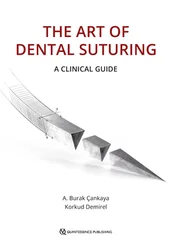not weak, if we make a proper use of those means which the God
of Nature hath placed in our power. Three millions of people,
armed in the holy cause of Liberty, and in such a country as
that which we possess, are invincible by any force which our
enemy can send against us. Besides, sir, we shall not fight our
battles alone. There is a just Power who presides over the
destinies of nations, and who will raise up friends to fight our
battles for us. The battle, sir, is not to the strong alone; it
is to the vigilant, the active, the brave. Besides, sir, we have
no election. If we were base enough to desire it, it is now too
late to retire from the contest. There is no retreat, but in
submission and slavery. Our chains are forged. Their clanking
may be heard on the plains of Boston. The war is inevitable; and
let it come! I repeat it, sir, let it come! It is in vain, sir,
to extenuate the matter. Gentlemen may cry "Peace, peace!" but
there is no peace! The war is actually begun! The next gale that
sweeps from the north will bring to our ears the clash of
resounding arms! Our brethren are already in the field! Why
stand we here idle? What is it that gentlemen wish? What would
they have? Is life so dear, or peace so sweet, as to be
purchased at the price of chains and slavery? Forbid it,
Almighty Powers!--I know not what course others may take; but as
for me, give me liberty or give me death!
2. Live over in your imagination all the solemnity and sorrow that
Lincoln felt at the Gettysburg cemetery. The feeling in this speech is
very deep, but it is quieter and more subdued than the preceding one.
The purpose of Henry's address was to get action; Lincoln's speech was
meant only to dedicate the last resting place of those who had acted.
Read it over and over (see page 50) until it burns in your soul. Then
commit it and repeat it for emotional expression.
3. Beecher's speech on Lincoln, page 76; Thurston's speech on "A Plea
for Cuba," page 50; and the following selection, are recommended for
practise in developing feeling in delivery.
A living force that brings to itself all the resources of
imagination, all the inspirations of feeling, all that is
influential in body, in voice, in eye, in gesture, in posture,
in the whole animated man, is in strict analogy with the divine
thought and the divine arrangement; and there is no
misconstruction more utterly untrue and fatal than this: that
oratory is an artificial thing, which deals with baubles and
trifles, for the sake of making bubbles of pleasure for
transient effect on mercurial audiences. So far from that, it is
the consecration of the whole man to the noblest purposes to
which one can address himself--the education and inspiration of
his fellow men by all that there is in learning, by all that
there is in thought, by all that there is in feeling, by all
that there is in all of them, sent home through the channels of
taste and of beauty.
--HENRY WARD BEECHER.
4. What in your opinion are the relative values of thought and feeling
in a speech?
5. Could we dispense with either?
6. What kinds of selections or occasions require much feeling and
enthusiasm? Which require little?
7. Invent a list of ten subjects for speeches, saying which would give
most room for pure thought and which for feeling.
8. Prepare and deliver a ten-minute speech denouncing the (imaginary)
unfeeling plea of an attorney; he may be either the counsel for the
defense or the prosecuting attorney, and the accused may be assumed to
be either guilty or innocent, at your option.
9. Is feeling more important than the technical principles expounded in
chapters III to VII? Why?
10. Analyze the secret of some effective speech or speaker. To what is
the success due?
11. Give an example from your own observation of the effect of feeling
and enthusiasm on listeners.
12. Memorize Carlyle's and Emerson's remarks on enthusiasm.
13. Deliver Patrick Henry's address, page 110, and Thurston's speech,
page 50, without show of feeling or enthusiasm. What is the result?
14. Repeat, with all the feeling these selections demand. What is the
result?
15. What steps do you intend to take to develop the power of enthusiasm
and feeling in speaking?
16. Write and deliver a five-minute speech ridiculing a speaker who uses
bombast, pomposity and over-enthusiasm. Imitate him.
FLUENCY THROUGH PREPARATION
Animis opibusque parati--Ready in mind and resources.
--_Motto of South Carolina_.
In omnibus negotiis prius quam aggrediare, adhibenda est
præparatio diligens--In all matters before beginning a diligent
preparation should be made.
--CICERO, _De Officiis_.
Take your dictionary and look up the words that contain the Latin stem
_flu_--the results will be suggestive.
At first blush it would seem that fluency consists in a ready, easy use
of words. Not so--the flowing quality of speech is much more, for it is
a composite effect, with each of its prior conditions deserving of
careful notice.
_The Sources of Fluency_
Speaking broadly, fluency is almost entirely a matter of preparation.
Certainly, native gifts figure largely here, as in every art, but even
natural facility is dependent on the very same laws of preparation that
hold good for the man of supposedly small native endowment. Let this
encourage you if, like Moses, you are prone to complain that you are not
a ready speaker.
Have you ever stopped to analyze that expression, "a ready speaker?"
Readiness, in its prime sense, is preparedness, and they are most ready
who are best prepared. Quick firing depends more on the alert finger
than on the hair trigger. Your fluency will be in direct ratio to two
important conditions: your knowledge of what you are going to say, and
your being accustomed to telling what you know to an audience. This
gives us the second great element of fluency--to preparation must be
added the ease that arises from practise; of which more presently.
_Knowledge is Essential_
Mr. Bryan is a most fluent speaker when he speaks on political problems,
tendencies of the time, and questions of morals. It is to be supposed,
however, that he would not be so fluent in speaking on the bird life of
the Florida Everglades. Mr. John Burroughs might be at his best on this
last subject, yet entirely lost in talking about international law. Do
not expect to speak fluently on a subject that you know little or
nothing about. Ctesiphon boasted that he could speak all day (a sin in
itself) on any subject that an audience would suggest. He was banished
by the Spartans.
But preparation goes beyond the getting of the facts in the case you are
to present: it includes also the ability to think and arrange your
thoughts, a full and precise vocabulary, an easy manner of speech and
breathing, absence of self-consciousness, and the several other
characteristics of efficient delivery that have deserved special
attention in other parts of this book rather than in this chapter.
Preparation may be either general or specific; usually it should be
both. A life-time of reading, of companionship with stirring thoughts,
of wrestling with the problems of life--this constitutes a general
preparation of inestimable worth. Out of a well-stored mind, and--richer
still--a broad experience, and--best of all--a warmly sympathetic heart,
Читать дальше












